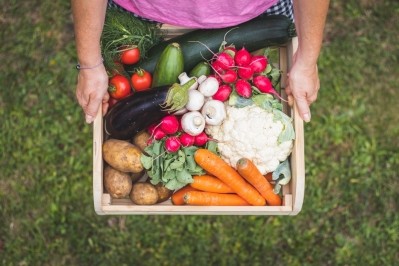Life in lockdown: Coronavirus prompts half of French consumers to reappraise ‘value’ of food

Lockdown has encouraged French people to ‘rethink their relationship with food’, Too Good To Go suggested.
According to the survey, carried out on behalf of food waste charity Too Good To Go by YouGov, French consumers say that when they ‘return to normal’ after the COVID-19 pandemic measures ease, they intent to only by ‘necessary’ food products, spend more time cooking and pay more attention to food expenses.
Changing attitudes also appear to have had a knock-on effect on food waste, with one in three respondents suggesting they now waste less food.
According to the report, confinement placed food as a central concern for the French and, as a result, their routines have changed. Forty-three percent said they are taking more time to cook, 41% are only buying the products they need and 35% are paying more attention to food costs.
Lucie Basch, founder and president of Too Good To Go, commented: “During confinement, our habits were turned upside down, we were forced to get back to basics and food found a new central place in our lives. It is very interesting to see how much the value of food has evolved for the French during confinement."
Basch noted that food waste currently accounts for 8% of total global carbon emissions but said it is ‘very motivating’ to see French consumers are evolving their view of the environmental impact of food, with 33% saying that they are now wasting less food.
Changing shopping habits
New attitudes to food appear to have resulted in changing shopping habits for some, the YouGov survey suggests.
This includes 29% of people reporting that they are buying more local foods, and 20% switching to online shopping.
Online meal orders have not seen similar growth. Only 4% said they have ordered a meal online, although this figure rises to 12% for 18-24-year olds.
It would seem, however, that some habits die hard and the research flagged a gender divide between who took responsibility for household shopping and cooking. French women spend more time cooking than men (48% versus 36%), plan more shopping lists (41% compared to 34%) and are more likely to organise the pantry (34% against 19%).
What has sticking power?
What changes in behaviour do French consumers say they want to continue to adopt post-COVID?
Half of French shoppers who said they have acquired new habits said they will maintain them.
In total, 32% of respondents said they would continue to only buy necessities after coronavirus restrictions ease, 31% said they would spend more time cooking, and 29% said they would pay more attention to food expenses. YouGov found that these were the top three habits adopted during lockdown that French people want to keep.
One-in-five said they wanted to continue to waste less food.
However, Too Good To Go said ‘personal goodwill’ will only get consumers so far – long-term change will depend on producers and retailers developing a better supply of local food and supporting efforts to cut food waste.
The survey found support among French consumers for these efforts: 51% supported improved availability of local food, 36% wanted the promotion of anti-food waste initiatives; 28% wanted to see the development of better organic products and ranging.



















